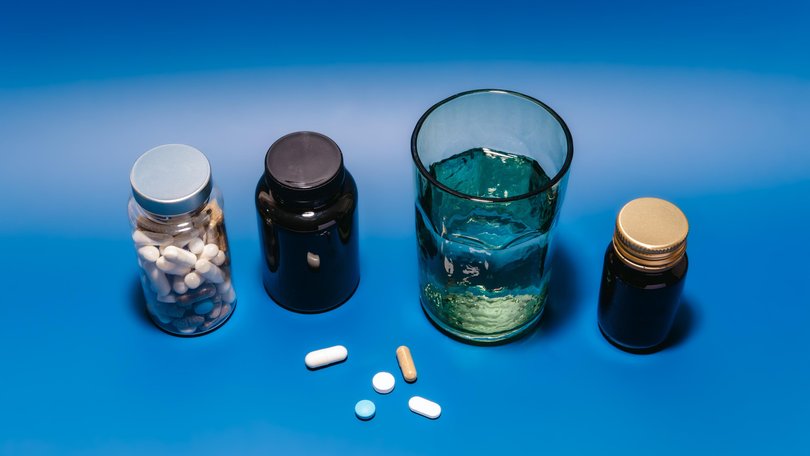THE WASHINGTON POST: What the science says about melatonin, magnesium and other sleep supplements
THE WASHINGTON POST: Science has a say on five popular solutions for sleeplessness.

Many people experience insomnia at some point in their lives, often due to anxiety. When these sleep issues persist for several months or longer, it is usually a good idea to visit a doctor to see if you have an underlying condition, like depression, restless legs or sleep apnoea, that requires medical treatment.
But for occasional periods of insomnia that leave you feeling bleary-eyed, experts say there may be some dietary supplements and even foods that can help.
It is important to recognise that no dietary supplement is going to radically improve your sleep. Supplements should not be viewed as a long-term solution. And almost all carry the risk of side effects.
Sign up to The Nightly's newsletters.
Get the first look at the digital newspaper, curated daily stories and breaking headlines delivered to your inbox.
By continuing you agree to our Terms and Privacy Policy.But some may produce modest benefits, such as helping you fall asleep slightly faster at night, and carry minimal side effects when taken in smaller doses.
Here’s what the science says about five popular supplements.
Melatonin
Melatonin is one of the most popular sleep supplements around but unlike in the US where it is sold over the counter, you’ll need a prescription in Australia — unless you’re over 55.
A hormone that is secreted in the pineal gland of your brain, melatonin regulates your sleep-wake cycle by synchronising your body’s internal clock with the outside world. It is produced primarily in the evening. But melatonin is not going to quickly send you off to sleep like a fast-acting sleeping pill. Instead, it promotes sleepiness by signalling to your body that it is night-time.
For that reason, melatonin supplements are most helpful for people with sleep-timing problems, said Phyllis C. Zee, the medical director of the Centre for Circadian and Sleep Medicine at the Northwestern University Feinberg School of Medicine. That includes people with jet lag, shift workers, and people who routinely struggle to fall asleep until extremely late at night.
For those people, taking melatonin in the evening can set their biological clocks earlier, helping them fall asleep and wake up earlier, Dr Zee said.
Melatonin levels decline with age, as well as post-menopause, said Fariha Abbasi-Feinberg, a specialist at American Academy of Sleep Medicine. “I think some people are more sensitive to it and can get some improvements in their sleep from it,” she added.
Studies have examined whether melatonin can alleviate insomnia, and results are mixed, Dr Abbasi-Feinberg said. Some studies have found that it can help people fall asleep faster and sleep more soundly.
But the AASM says there is not enough evidence on effectiveness or safety to recommend use.
It should be taken about two hours before bed for it to be most effective, said Dr Zee who recommends a low dose.
In Australia, the Therapeutic Goods Administration recommends 2mg for over-55s and warns melatonin purchased overseas may contain inaccurate dosages and inferior quality. Studies have shown that several US melatonin products are inaccurately labelled.

Magnesium
Magnesium plays an important role in sleep. It promotes relaxation, calms the nervous system and helps naturally produce melatonin.
Studies have linked inadequate consumption to shorter and poorer-quality sleep. Scientists found in animal studies that magnesium deficiencies lead to reductions in melatonin.
Some studies have found that they can be helpful for people experiencing insomnia. But the studies showing benefits have been mostly small and not very conclusive.
A systematic review and meta-analysis published in 2021, scientists looked at three trials involving 151 older adults with insomnia that compared the supplements to a placebo. People taking magnesium fell asleep about 18 minutes faster.
The researchers cautioned that more rigorous studies were needed. But they could find no evidence discouraging its use for insomnia in older adults.
Dr Abbasi-Feinberg said she occasionally recommends a low dose to people who routinely struggle to fall asleep.
“I will tell them to start with 100 or 200mg of magnesium and see if that makes a difference,” she said.
She stressed that people should stick to a low dose because magnesium can have side effects, including nausea, vomiting and diarrhoea. These side effects typically occur with doses above 350mg.
“It is important to note that more is not better,” said Dr Zee. “Check with your doctor . . . to avoid possible interactions with other medications or medical conditions.”
Probiotics
Studies have found that higher levels of gut-microbiome diversity — generally considered a sign of a healthy gut — are associated with longer, better sleep and fewer night-time awakenings.
Many hormones and metabolites that are produced by our gut microbes act directly on the brain to influence sleep regulation, including neurotransmitters like serotonin, said Chris Damman, a gastroenterologist.
Dr Abbasi-Feinberg encourages her patients to consume probiotics, which are live bacteria and other microorganisms that confer health benefits. But probiotic supplements — which are available in capsules, gummies, powders and pills — can have some downsides. For one, they tend to contain concentrated doses of just a few strains of bacteria. Studies have shown that taking them may actually reduce the microbial diversity in your gut.
Instead, Dr Abbasi-Feinberg recommends that you get probiotics from fermented foods, like plain yoghurt, kefir, kimchi, sauerkraut and tempeh. They typically contain not only probiotics (the live microbes) but also prebiotics (the fibre the microbes eat) and postbiotics (the vitamins and nutrients they produce).
One clinical trial found that older adults who drank a little more than half a cup of fermented milk every day for three weeks fell asleep more quickly at night and had fewer night-time awakenings compared to when they drank a placebo. Studies have shown that fermented foods also have other health benefits, including reducing inflammation.
Dr Abbasi-Feinberg says fermented foods have the potential to improve their sleep and have very little downside. “If there is no risk involved and the benefit is there,” she said.
Vitamin D
Vitamin D helps the body convert tryptophan into serotonin, a neurotransmitter that plays an important role in how well and how long you sleep. As one recent study noted, vitamin D receptors have been found in regions of the brain that regulate sleep, suggesting that it plays a direct role in our nightly shut-eye.
“Deficiencies can cause issues with low energy and low mood,” said Dr Abbasi-Feinberg, “and sleep can be affected”.
There is some evidence that taking vitamin D can improve sleep. But the data are mixed, and not every study has shown benefits. Also, some of the studies involved taking a single large dose as a shot at weekly or fortnightly intervals, rather than a daily pill.
Dr Abbasi-Feinberg said she sometimes encounters patients with sleep problems who work from home and rarely get any exposure to morning sunshine.
“They roll out of bed and turn their computer on and, boom, they are at work and they do not get outside,” she said. That can be a problem because exposure to sunshine helps your body produce vitamin D.
It also halts production of melatonin and resets your circadian rhythm, which can help you sleep better at night. For that reason, Dr Abbasi-Feinberg often prescribes sunshine to her patients — rather than supplementation.
Ashwagandha
Made from the herb Withania somnifera. Ashwagandha is used as a traditional medicine in India for a variety of reasons, but has surged in popularity thanks to social media.
There is some evidence that it can help with insomnia. But there are risks involved and the data is not conclusive.
In 2021, scientists analysed five randomised trials involving 400 people that looked at the effects of ashwagandha on sleep compared to placebo. They found a small but significant effect of ashwagandha on overall sleep. People assigned to take a supplement daily slept on average about 25 minutes longer each night and had improvements in sleep quality.
But scientists cautioned that there were limited data on ashwagandha’s potentially serious side effects, and they said that more research was needed to determine whether it was safe for long-term use.
As it has been linked to a handful of cases of liver toxicity, the TGA has warned on its use in Australia where it is available as therapeutic drug and also known as Withania.
Dr Abbasi-Feinberg said she does not necessarily discourage people from trying ashwagandha or other Ayurvedic remedies to help them sleep if they are not known to be harmful. But she feels there is not enough strong evidence to recommend them. “I am not enthusiastic about them because I feel like the data just are not there yet,” she added.
It should be avoided altogether if you are pregnant or nursing, have an autoimmune, liver, or thyroid disorder or are taking sedative medication.
© 2025, The Washington Post
Originally published as What the science says about melatonin, magnesium and other sleep supplements
